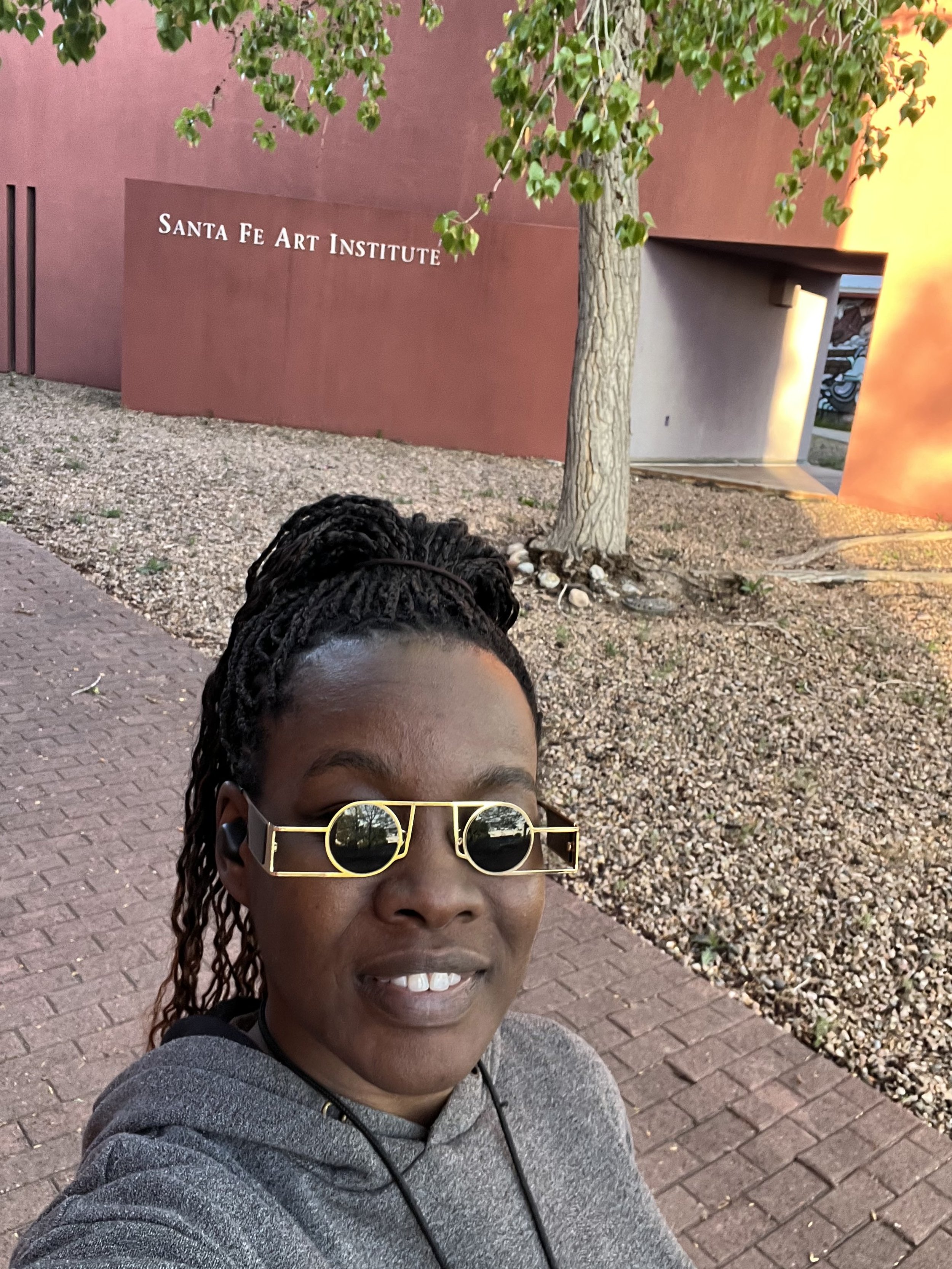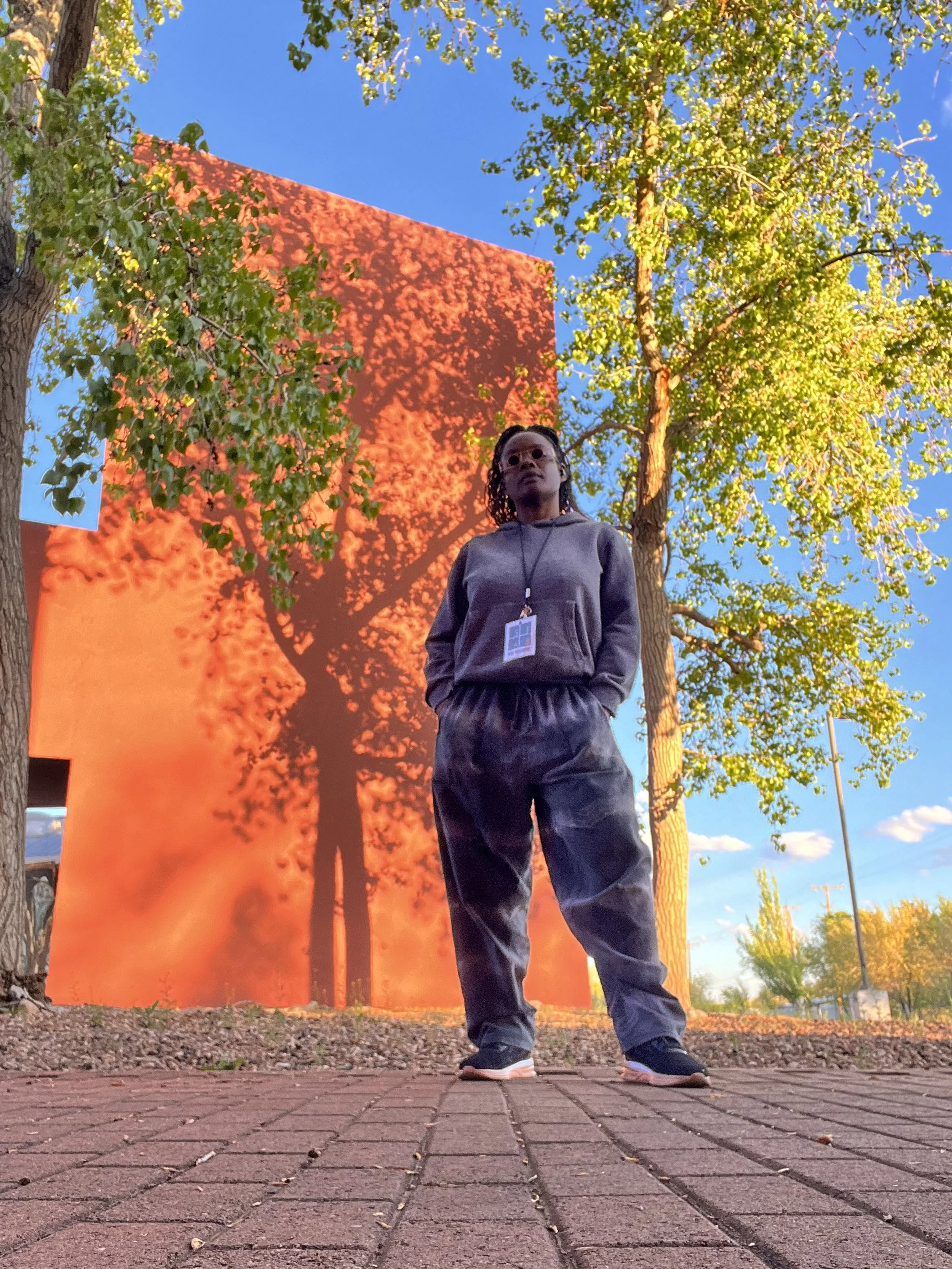Santa Fe Art Institute- Sovereignty Resident 2024
Santa Fe Art Institute
Sovereignty Residecy 2024
The application for this residency asked applicants to; “Speak to jurisdiction and the ability to self-govern; Explore various concepts around sovereignty, including land and treaty rights, cultural appropriation, gender and bodily autonomy, ethno-linguistics and language revitalization, and control over the dissemination and governance of content; and Explore inter-dependencies or divisions which change sovereign relationships.”
Below is my project proposal which got me accepted.
MY NAME IS_________ This is a body of work I will research and develop around the sovereignty of African and indigenous names, naming practices and identity formation and how reclaiming these names changes sovereign relationships. Names and naming traditions are ubiquitous culturalpractices that herald the beginning of bearers as social beings. Naming is one of the important symbolic resources in which an African/indigenous society can express its culture, and it is through name bestowal that history can begin to gather around the name-bearer (Bodenhorn and vom Bruck, 2006).
PROJECT: My research will cover naming practices of Africans and other indigenous people beforetheir contact with the west from slavery, colonization and violence. My goal is to create an online platform where people who have been made to anglicize their names can reclaim their indigenous names using indigenous naming practices. This will be done through a collaborative platform and multimedia set up that allows people to perform the indigenous naming ritual and speak the name into an audio-visual database. This collaborative platform will connect people to others within their origin and serve as a repository and directory of names and their meanings in order to inspire others looking to reconnect with their origins in an ever evolving digital memorial and archive.
Through this body of work, my goal is to empower people to reclaim their indigenous names, use indigenous naming practices to name themselves and create a visual database of indigenous names as a memorial, archive and a global tool of cultural preservation. This collaborative platform will serve as a ritual and visual evidence acknowledging the loss of our names and identity and our reclaiming of those names as a tool to change sovereign relationships. Every participant that inputs their indigenous name becomes a part of a collective reclaiming and proclaiming their indigenous identity.
Assigning new names to enslaved people, or even leaving them nameless, was an attempt by the colonizers to obliterate African collective memories and identities; one of many ways in which Africans were subjugated and forced into perpetual servitude (Fitzpatrick, 2012)
Through my project, I will research and create a ritual and methodology for all whose names have been snatched from them to reclaim and proclaim those names. Names carry our identity, history and ancestry and the deliberate changing of African names is a violent act. My project will meditate on the power and perseverance of African and other indigenous names as a tool for sovereignty, identity and self-determination.
My work seeks to show the similarities and importance of names and naming practices across indigenous people as a tool for cultural preservation and changing sovereign relationships. Post slavery and colonialism, the dominant hegemonic political structure in Africa and in the West had compelled many Africans and others to change their names so as to be relevant or acceptable in the prevailing socio-political system. A recent article in the Washington Post documents the stories of several people reclaiming their names in America. https://www.washingtonpost.com/nation/interactive/2023/common-american-names-changing/
Lynch (2016) avers that names and naming provide the structures and nuances of the way we imagine and understand the world, and are essential practical rituals of everyday life. It is therefore an important tool in exploring how reclaiming our indigenous names changes our relationship with systems of oppression and the dominant socio-political climate in the United States and Africa. Names and naming practices interface with every facet of life – environment, occupation, geography, spirituality, economy, politics, family and conflict – in the quest for identity and authenticity and in the preservation of linguistic and social heritage.
Through this body of work, I am seeking the revitalization of African and indigenous languages in the context of names to preserve cultural identity and indigenous linguistic heritage as well as empower all who have suffered the loss of their names and identity to reclaim them.



